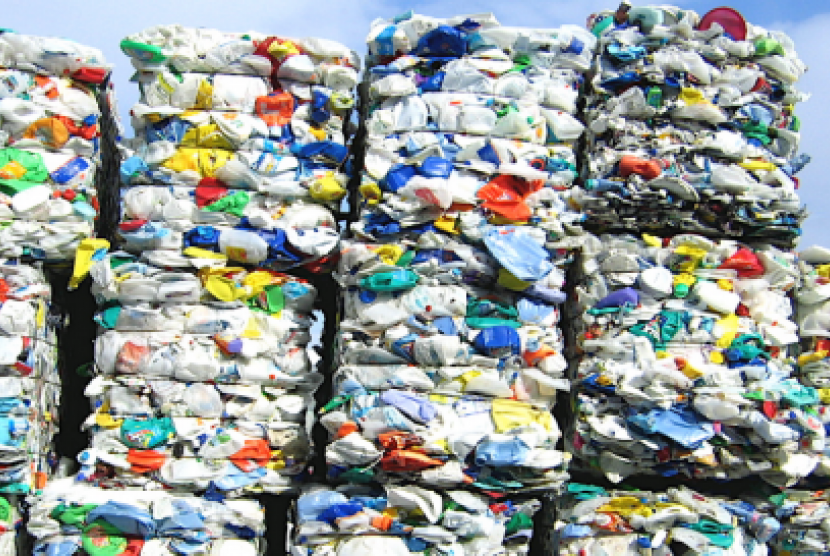REPUBLIKA.CO.ID, JAKARTA -- Industry Ministry and the United Nations Development Programme (UNDP) encourage all parties in Indonesia to do actions to reduce plastic pollution. About 13 million tons plastis waste going to the sea affected environment worldwide every year, UNDP estimated.
"Therefore, the government, private sector and community should share responsibility to handle this plastic waste," the ministry's Industry Research and Development Agency head Ngakan Timur Antara said in a press release on Sunday.
The efforts to reduce plastic waste can be carried out in three ways including minimizing the use of disposable plastic product, using alternative materials that more easily decompose and recycling plastic waste into goods which have economic value.
Using biodegradable plastic can be one of the solutions to reduce plastic waste, Antara said.
"However, it is not so popular among non-retailers because it is relatively pricey compared to conventional plastics," he explained.
Not only biodegradable plastic technology that promises changes in plastic consumption pattern in the society, but also edible coating which began to grow in use.
Edible coating material, which has plastic-like characteristics and commonly used in the food industry, is usually made from vegetables such as tapioca flour that is more environmentally friendly and certainly edible.
Antara believes that in the future, more technology will be emerged to help solve plastic problems, but putting plastic into the circular economy is considered as the fastest solution today.
"A simple example of how people can contribute in the circular economy is by throwing the trash in the garbage can or the collecting point," he said.
He also mentions that one of the leading cosmetic brands even rewards some points to their customers who return the used packaging. The points are redeemable in rupiah which can be spent on products from the brands.
Another action is plastic straw reduction that has been initiated by a famous fast food franchise in Indonesia. Such movements has in fact, created new opportunity of promoting eco-friendly and sustainable straws made by bamboo or stainless.
Also read: Increasing plastic waste raises concern: Kehati
UNDP Indonesia Senior Programme Manager Anton Sri Probiyantono said, the risks posed by plastic pollution to the environment and human health have driven the international community to act through the global movement of "Beat Plastic Pollution" in the framework of World Environment Day on June 5.
"We want to encourage everyone to start doing something simple in everyday life to save the environment", he noted.
In order to contribute to the goal of reducing plastic pollution, Industry Ministry and UNDP held special events through exhibitions of photography and art installations made by plastic waste, workshop of dyeing fabric shopping bags, waste sorting contests and documentary films on sustainable development.
This activities are expected to target the Indonesian young generation to raise their attention to the issue of environmental development.
Industry Minister Airlangga Hartarto has confirmed the commitment to encouraging the growth of sustainable and environmentally friendly industries, one of them through biodegradable plastic producers to increase production. This effort is expected to contribute significantly to environment preservation.
"Within two years, the product (of biodegradable plastic) is expected to be 10 times fold, so it will not only replace the shopping bag but also packaging as a whole, and not only in modern market but also traditional," he said.
To that end, the minister spurred the increase of biodegradable plastic production up to five percent of the current national capacity of 200 thousand tons per year to replace conventional plastic. "Meanwhile, plastic consumption in Indonesia reaches five million tons per year, and only 50 percent can be met from the domestic industry," he said.
Moreover, the Indonesian government is actively promoting the concept of a circular economy with a principle known as 5R comprises of reduce, reuse, recycle, recovery, and repair.



